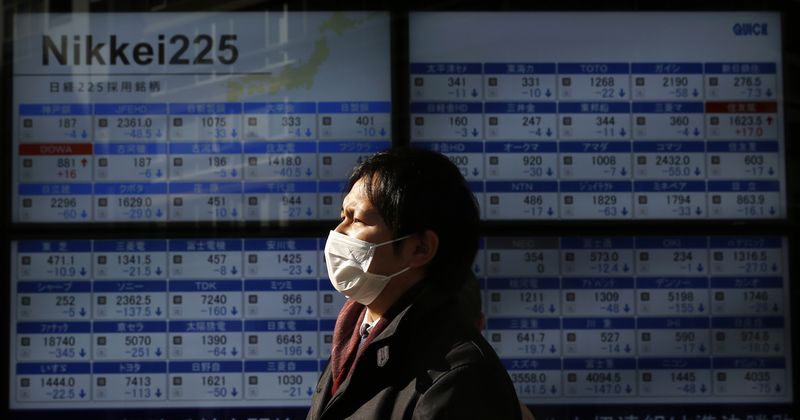By Nichola Saminather
SINGAPORE (Reuters) - The initial reaction of Asian stock investors to Donald Trump's election victory was clear: sell, on worries his protectionist trade rhetoric could hurt the region's export economies.
Long-term investors have since started to trade on Trump's promises of tax cuts and higher infrastructure spending that will stimulate U.S. growth and pull the world economy along, or the reflation play.
Asian emerging stocks (MIMS00000PUS) have risen more than 11 percent from a Dec. 23 low, above November's pre-Nov. 8 election levels though they have come off their highs on prospects of an imminent U.S. interest rate hike.
"You can buy cyclical stocks in Asia and benefit from the reflation trade," said Sat Duhra, an Asia fund manager at Henderson Global Investors. "You don't have to buy exporters and be exposed to the vagaries of U.S. policy."
The rally in Asian shares has been led by cyclical sectors, such as consumer-related companies, which typically thrive in times of economic strength.
Materials stocks , for example, are up 15 percent from post-election lows, while utilities have risen less than 9 percent.
DEFLATION TO INFLATION
Investors are more confident governments can boost growth via fiscal policies and that inflation is picking up after a long period of highly stimulative global monetary policies.
"What has started to change, which is giving people faith, is that global growth is starting to spread," said Josh Crabb, head of Asian equities at Old Mutual Global Investors.
"Asia is still very cheap, and people are buying into markets like Taiwan and South Korea because they see them as global growth trades."
Old Mutual's sterling-denominated Asia-Pacific fund, whose biggest holdings include South Korea's Samsung (LON:0593xq) Electronics (KS:005930), Hong Kong-based Tencent Holdings (HK:0700) and Taiwan Semiconductor Manufacturing Co (TW:2330), returned 6.2 percent in January, compared with the benchmark's 3.9 percent.
Signs are that manufacturing, consumer demand and inflation are picking up across Asia. The World Bank has also forecast 2.7 percent global growth this year, from 2.3 percent in 2016.
Taiwan and South Korea - which have led equity flows into Asian emerging markets this year - could be vulnerable to U.S. trade protectionism, but Henderson's Duhra said larger firms such as Samsung and TSMC are "so far up the value chain that they're not just commoditised tech companies."
With more of such companies and stronger current account positions, North Asian markets are a better bet than Southeast Asia, he said.
A more stable Chinese economy has also helped emerging Asia.
"The interaction of the Chinese economy with the rest of the Asian economies is now extremely close," said Mark Wills, Asia Pacific managing director of State Street Global Advisors, whose emerging Asia equity fund returned a net 7.5 percent in dollar terms in January compared with the benchmark's 5.9 percent.
"Markets are basking in the China growth story and have discounted, for now, trade war threats."
Still, others are cautious.
Credit Suisse (SIX:CSGN) has downgraded Asian stocks to neutral, warning that despite the region's positives the risk of protectionism and a stronger dollar remain concerns.
Indonesia, with a widening current account deficit, and the Philippines, with a worsening trade deficit, have seen the biggest outflows this year.
Deutsche Bank (DE:DBKGn) Wealth Management Asia-Pacific chief investment officer Tuan Huynh has reduced the region to a small underweight from neutral, as it has exceeded its 12-month target, but recommended buying on dips.
